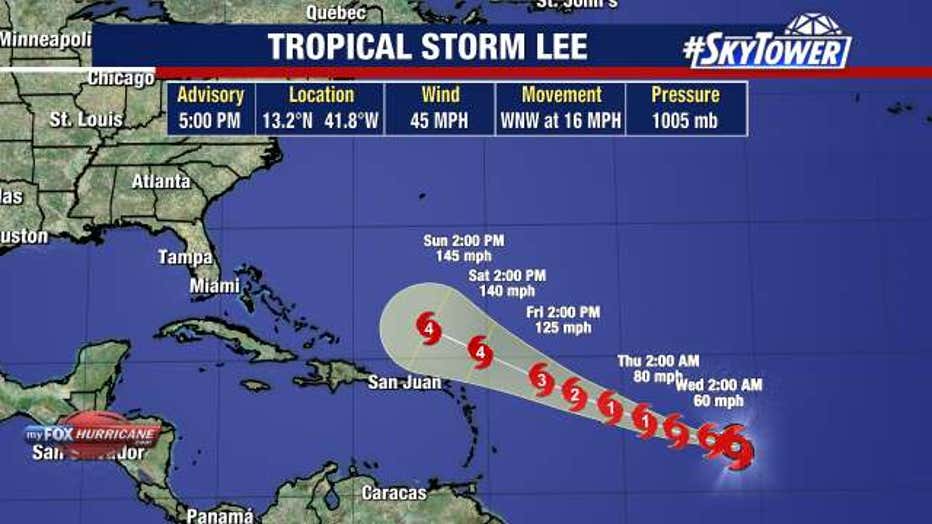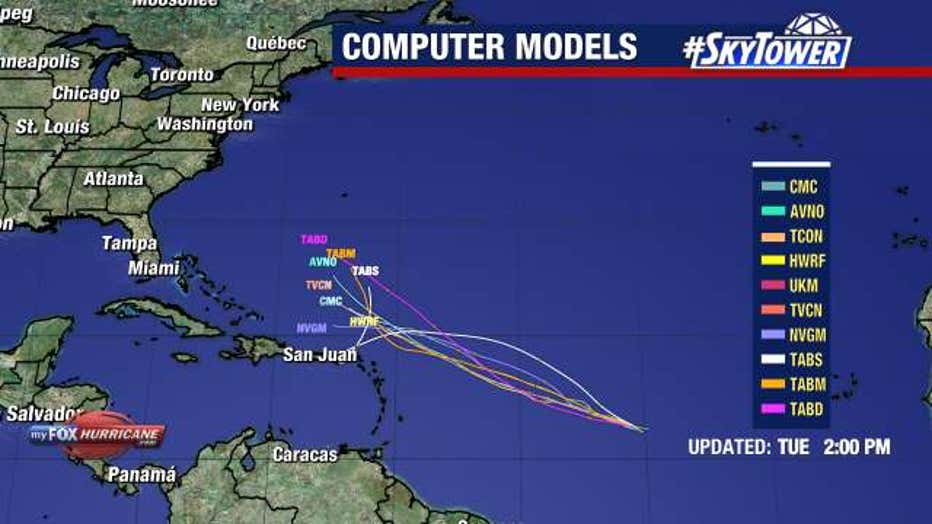Tropical Storm Lee named over Atlantic, expected to become 'extremely dangerous' hurricane: NHC
TAMPA, Fla. - Tropical Storm Lee was officially named over the Atlantic Ocean, the National Hurricane Center announced Tuesday afternoon, and they expect it to rapidly shape up to become a major hurricane by the weekend.
The system carried maximum sustained winds of 45 mph as of the 5 p.m. advisory and was moving West Northwest at 16 miles per hour.

The tropical storm, formerly known as Tropical Depression 13, is expected to become a powerful hurricane as it approaches the Caribbean.
It was forecast to strengthen into an "extremely dangerous" hurricane by Friday as it moves over very warm waters and pass just northeast of the Caribbean region, the center said.
READ: How much flood water does it take to damage a car? Does it matter if it is salt or fresh?
Preliminary forecasts are not predicting any landfall, although the center warned that "it is too early to determine exactly how close this system will be to the Leeward Islands."
FOX 13 Chief Meteorologist Paul Dellegatto said a vast majority of ensembles for the potential major hurricane are seeing a "recurve," which could keep the storm away from the East Coast of the United States.
However, Tropical Storm Lee is far out in the Atlantic. Dellegatto said the storm will require monitoring especially as the upper air pattern evolves along the East Coast.

That upper air pattern, Dellegatto said will go a long way in dictating the future of the storm.
Many computer models indicate the possibility of a turn towards the north before the system approaches landfall in the United States, but the NHC urges continued monitoring of the depression due to possible impacts to the Leeward Islands.

Lee is the 12th named storm of the Atlantic hurricane season, which runs from June 1 to Nov. 30.
In August, the National Ocean and Atmospheric Administration updated its forecast and warned that this year’s hurricane season would be above normal. Between 14 to 21 named storms are forecast. Of those, six to 11 could become hurricanes, with two to five of them possibly becoming major hurricanes.
The Associated Press contributed to this report.


